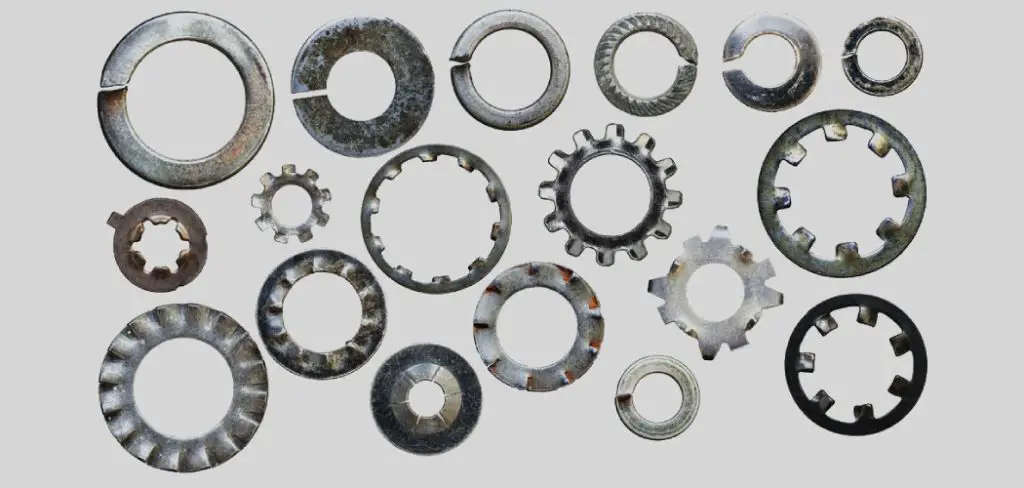A lock washer is a type of washer that is used to prevent bolts and nuts from coming loose due to vibration or other external forces. The washer has a split ring that creates tension while compressed, which helps to keep the fastener in place.
However, not all fastening applications require a lock washer. This article will discuss when you should use a lock washer and when you should not.

When to Use a Lock Washer
High Vibration Applications
Lock washers are commonly used in applications where there is a high risk of vibration. For example, machinery, engines, and heavy equipment are all subject to a vibration that can cause nuts and bolts to lose. In such cases, a lock washer can help to keep the fastener in place.
Tightened with a Specific Torque
The proper torque may be required to ensure adequate performance, depending on the application. A lock washer can help to keep the fastener in place and resist loosening due to vibration or other external forces.
Stop Rotating Fasteners
Sometimes when a nut and bolt are being tightened, the nut or bolt can rotate for a short period after being tightened, preventing the fastener from being tightened any further. A lock washer can help avoid this by creating friction between the nut or bolt and the surface, thus preventing it from rotating.
When Not to Use a Lock Washer
On Hard Surface
Regarding hard surfaces such as porcelain toilets, lock washers are not ideal for use as they tend to slip and fail to work effectively. It is, therefore, not recommended to use lock washers on smooth and hard surfaces like porcelain.
Soft Material
Using lock washers on soft materials like wood or plastic may yield different results than the intended or different ones. The lock washer can gradually wear into the soft material, causing a weakening of the connection over time.
This could cause damage to the delicate materials’ surface too. As a result, it is advisable not to use lock washers on soft materials that are susceptible to damage.
Clamped Material Under Pressure
The Lock Washer is designed to grip the surface and the nut automatically; however, it may deform if installed in a clamped material under pressure, resulting in a weakened connection and reduced performance.
With Plain Washer
Many people make the mistake of using plain washers in conjunction with lock washers, although this is only sometimes necessary. In certain circumstances, it may be beneficial; however, the lock washer cannot create friction between the surface or nut, which can lead to loose of the nut bolt under vibration or pressure.
Conclusion
I am evaluating the application and determining whether a lock washer is necessary before use is essential. Remember that using a lock washer in the wrong situation can lead to additional problems, even failures.
We hope this article has provided valuable information and insights into when you should use a lock washer. If you found this article helpful, we encourage you to comment and share it with your friends and colleagues. Sharing knowledge and information is essential to help others make informed decisions and improve project safety and reliability.
